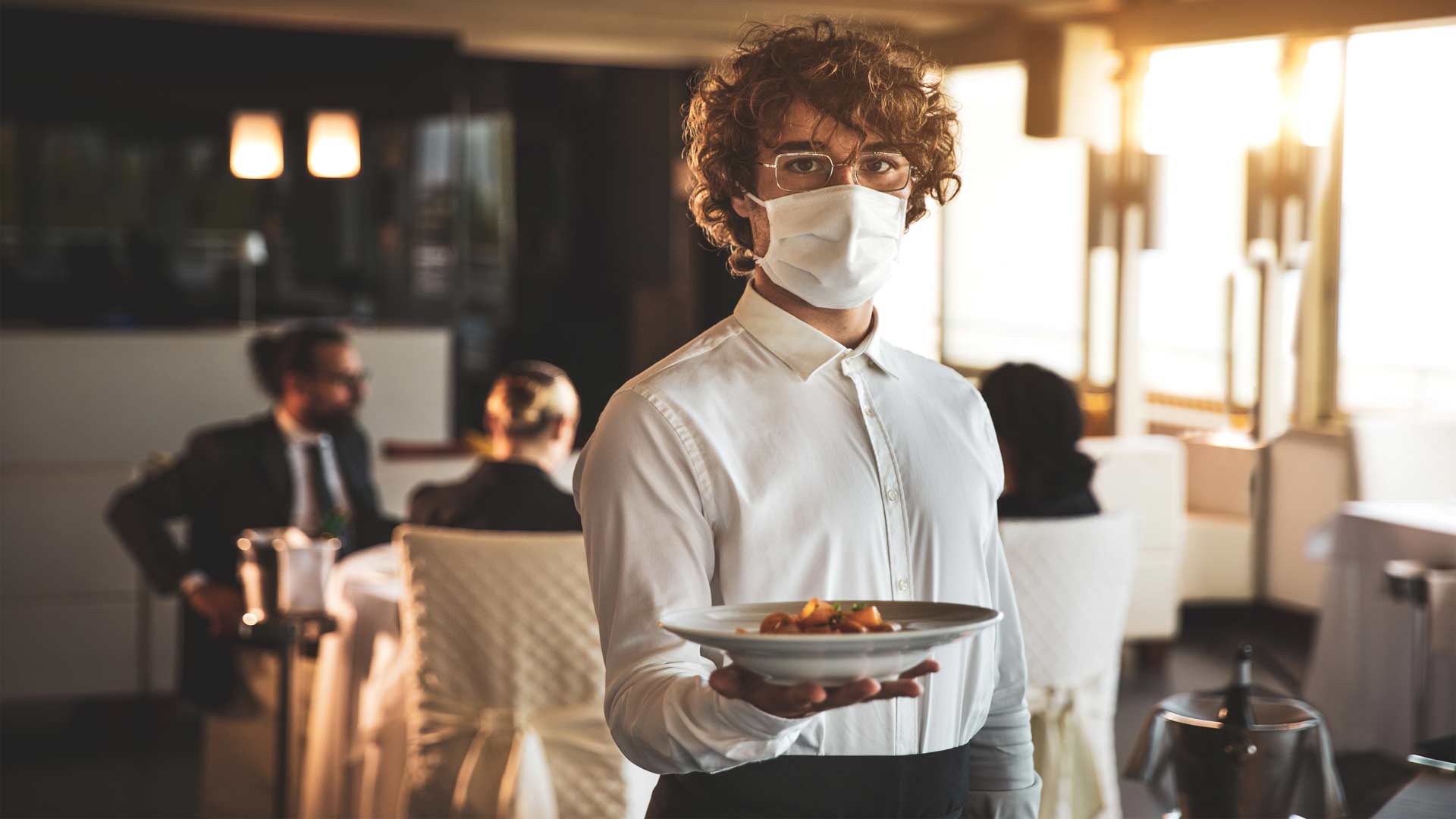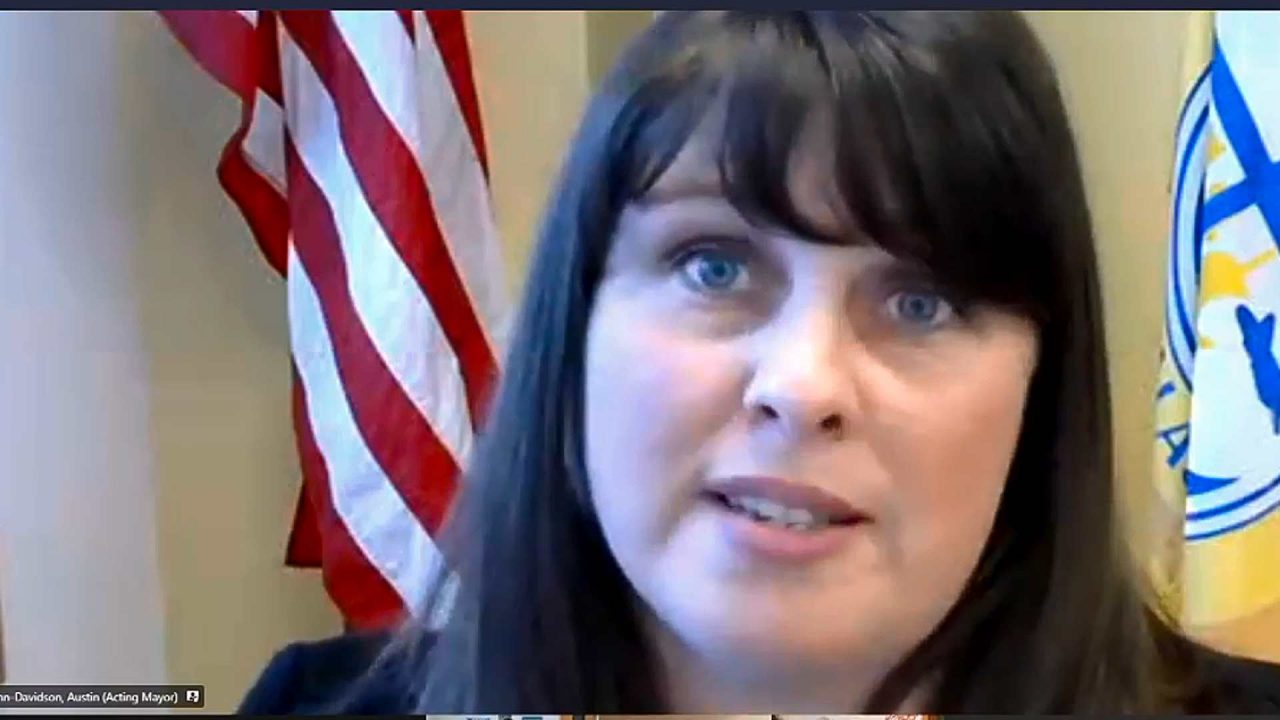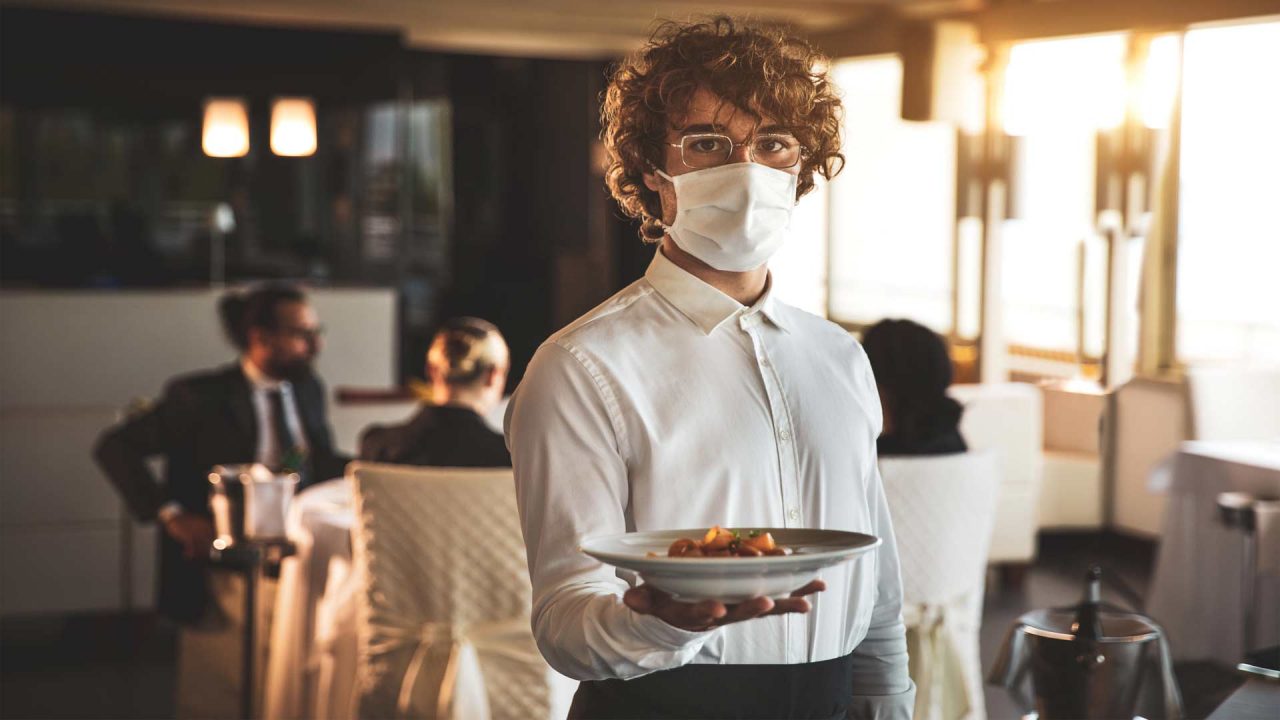
Under mounting pressure as local businesses continue to shutter in the wake of crippling COVID-19 mandates, the unelected Acting Mayor of Anchorage Austin Quinn-Davidson signed Emergency Order 17 in what she called a “response to the changing conditions of COVID-19.”

The latest order eases up on controversial restrictions she imposed Dec. 1 while keeping many other limits in place. The order takes effect on Jan. 1, 2021, at 8 a.m. and remains in place until revoked.
Quinn-Davidson’s previous order prohibited all restaurants, bars and diners from offering in-door services, a move that has caused several businesses – including the historic Peggy’s Restaurant – to close down, at least temporarily.
Several local restaurants were considering reopening despite the Quinn-Davidson’s orders, but were waiting to see if she would ease up first. While the new order allows restaurants to open at 25% capacity that is still far more restrictive than the 50% capacity plan which restaurant owners proposed earlier this month.
In the last month, COVID case rates in Anchorage have dropped by more than half and continue to decrease. At no point did hospitals reach capacity, despite repeated dire warnings from the acting mayor and her staff.
“We came perilously close to overwhelming our health care system before the holidays, but thanks to the personal sacrifices Anchorage residents made, we’re ready to transition to EO-17, which gently loosens limitations, while remaining focused on public health measures,” she said on Dec. 29.
Her latest order sets forth the following:
- Indoor gatherings remain limited to six people, and outdoor gatherings are limited to 10 people. Specific exceptions are included for drive-in events, classrooms, and political and religious gatherings.
- Bars and restaurants may operate indoor seated table service only up to 25% capacity. All alcohol service must stop by 11 p.m. each day.
- Organized sports are closed to indoor competition between different teams.
- Indoor gyms and fitness centers are limited to 50% capacity.
- Salons and personal care service providers are limited to 50% capacity.
- Entertainment facilities are limited to 25% capacity.
- All retail and other public-facing businesses are limited to 50% building occupancy.
Businesses or entities that have questions about Anchorage’s COVID-19 response can email COVID-19-business@anchorageak.gov or call Alaska 2-1-1 or 343-4019.








8 Comments
I will say it again just ignore the tyrants and open you businesses 100 percent. They can’t do anything about it. All they will do is issue a fine. Whoopety doo. Don’t pay it!
Exactly, and keep driving by their houses and honking. They will fold like a cheap card table. If you qualify, sign those recall petitions.
I agree, gentlemen.
Question: how do I find out the addresses of these tyrants? I love the idea of driving by their houses and honking!
I am a contributor and a reader of this publication. I like the short story version of the covered subjects. Currently, I want to to know where we can be part of the entire Anchorage assembly recall. They all need to go including the governor for closing our economy. The recent opening of 0800 on January 01 is a deliberate slap in the face to bar owners and patrons. This kills New Years Eve celebrations, one on the best income days of the year for these struggling small business.
And you know that, since there will probably be an uptick in cases in a couple of weeks due to Christmas and New Year, they are going to use that as an excuse to close everyone down again…
This judgment established a new standard of ethical medical behavior for the post World War II human rights era. Amongst other requirements, this document enunciates the requirement of voluntary informed consent of the human subject. The principle of voluntary informed consent protects the right of the individual to control his own body. The principles established by this code for medical practice now have been extended into general codes of medical ethics.
The voluntary consent of the human subject is absolutely essential. This means that the person involved should have legal capacity to give consent; should be so situated as to be able to exercise free power of choice, without the intervention of any element of force, fraud, deceit, duress, overreaching, or other ulterior form of constraint or coercion; and should have sufficient knowledge and comprehension of the elements of the subject matter involved as to enable him to make an understanding and enlightened decision. 1947 Nuremburg Code, BRITISH MEDICAL JOURNAL No 7070 Volume 313: Page 1448, 7 December 1996.
Further, the International Community has also adopted the Universal Declaration of Bioethics and Human Rights which asserts three fundamental rights:
Any preventive, diagnostic and therapeutic medical intervention (such as masks or vaccines) is only to be carried out with the prior free and informed consent of the person concerned, based on adequate information. The consent should, where appropriate, be express and may be withdrawn by the person concerned at any time and for any reason without disadvantage or prejudice. Scientific research should only be carried out with the prior, free, express, and informed consent of the person concerned. The information should be adequate, provided in a comprehensible form and should include modalities for withdrawal of consent. Consent may be withdrawn by the person concerned at any time and for any reason without any disadvantage or prejudice. In appropriate cases of research carried out on a group of persons or a community, additional agreement of the legal representatives of the group or community concerned may be sought. In no case should a collective community agreement or the consent of a community leader or other authority substitute for an individual’s informed consent. Universal Declaration of Bioethics and Human Rights. As the Second Circuit Court of Appeals articulated in the case Abdullahi v. Pfizer, Inc., 562 F. 3d 163, 176 (Court of Appeals, 2nd Circuit) (2009) “Courts are obligated to examine how the specificity of the norm compares with 18th-century paradigms, whether the norm is accepted in the world community, and whether States universally abide by the norm out of a sense of mutual concern. By eschewing this inquiry, the district court did not engage the fact that norms of customary international law are “discerned from myriad decisions made in numerous and varied international and domestic arenas” and “[do] not stem from any single, definitive, readily-identifiable source.” Abdullah v. Pfizer, Inc., op. cit., citing Flores, 414 F.3d at 247-48. “[T]he existence of a norm of customary international law is one determined, in part, by reference to the custom or practices of many States, and the broad acceptance of that norm by the international community. Agreements that are not self-executing or that have not been executed by federal legislation, including the ICCPR, are appropriately considered evidence of the current state of customary international law.” See Khulumani, 504 F.3d at 284 (Katzmann, J., concurring). Abdullah v. Pfizer, Inc., supra.The Appellate Court went on to say that “[t]he ICJ Statute permits, and Sosa encourages, among other things, that courts consider “international custom, as evidence of a general practice accepted as law.” ICJ Statute, supra, at art. 38(1); Sosa, 542 U.S. at 734, 124 S.Ct. 2739 (“[W]here there is no treaty, and no controlling executive or legislative act or judicial decision, resort must be had to the customs and usages of civilized nations.”) Abdullah v. Pfizer, Inc., at 176-177, quoting The Paquete Habana, 175 U.S. at 700, 20 S.Ct. 290). One wonders if the state of Washington even qualifies as a “civilized nation”. There is no consent involved at all in the mandate issued by Weisman and adopted by Inslee. It is mandatory without the opportunity for consent, and such a mandate is anathema to the concept of ordered liberty. As Justice Cardozo articulated in the seminal case Palko v. Connecticut, 302 US 319, 324-35 (1937): “The due process clause of the Fourteenth Amendment makes it unlawful for a state to abridge by its statutes the freedom of speech which the First Amendment safeguards against encroachment by the Congress,” De Jonge v. Oregon, 299 U.S. 353, 364; Herndon v. Lowry, 301 U.S. 242, 259; or the like freedom of the press, Grosjean v. American Press Co., 297 U.S. 233 ; Near v. Minnesota ex rel. Olson, 283 U.S. 697, 707; or the free exercise of religion, Hamilton v. Regents, 293 U.S. 245, 262; cf. Grosjean v. American Press Co., supra; Pierce v. Society of Sisters, 268 U.S. 510; or the right of peaceable assembly, without which speech would be unduly trammeled , De Jonge v. Oregon, supra; Herndon v. Lowry, supra; or the right of one accused of crime to the benefit of counsel, Powell v. Alabama, 287 U.S. 45. In these and other situations immunities that are valid as against the federal government by force of the specific pledges of particular amendments have been found to be implicit in the concept of ordered liberty, and thus, through the Fourteenth Amendment, become valid as against the states.” Palko, supra.
Michael Hughes. Addresses are public record. Just go to the city site that shows all the land parcels and type in a name. It will pop up.